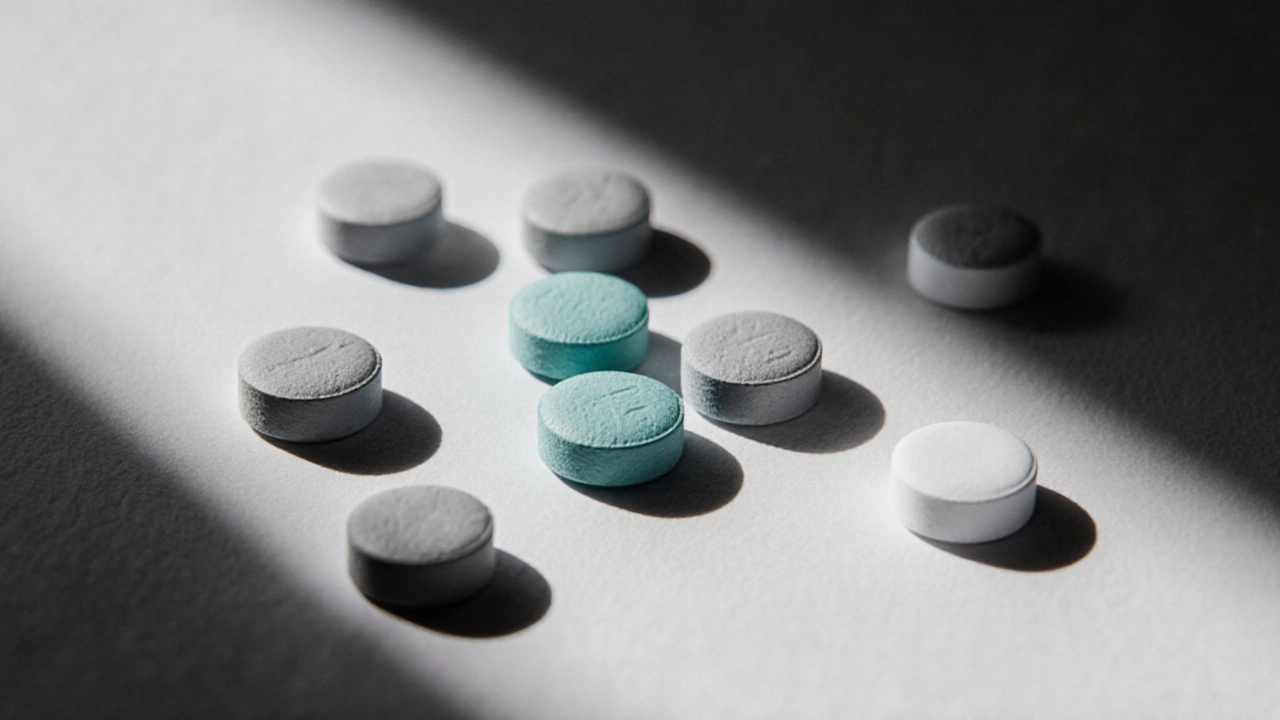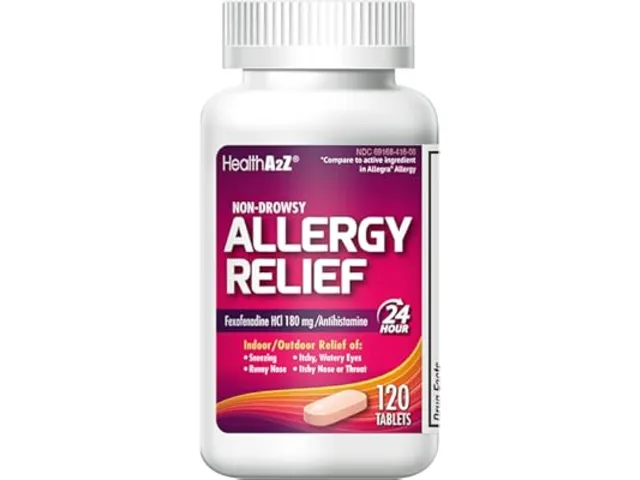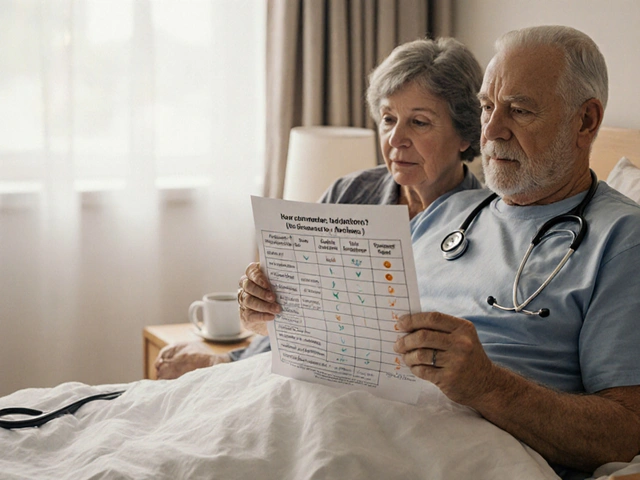Treatment Decision Tool for Hydroxychloroquine vs Alternatives
Patient Treatment Decision Tool
This tool helps identify appropriate treatment options based on your condition and risk factors. Based on evidence from current guidelines.
Treatment Recommendation
Details
When the pandemic first hit, headlines were full of names like hydroxychloroquine and a slew of other drugs touted as potential cures. Years later, doctors, pharmacists, and patients still wonder: how does this old malaria medicine really stack up against the newer alternatives? This guide walks you through the science, the evidence, and the safety profile so you can decide which option makes sense for a given condition.
What is Hydroxychloroquine?
Hydroxychloroquine is a synthetic 4‑aminoquinoline originally developed to treat malaria. Over time, it gained a second life as an immunomodulator for autoimmune diseases such as systemic lupus erythematosus and rheumatoid arthritis. In the United States, the brand name Plaquenil is most recognized. The drug works by raising the pH inside cells, which interferes with parasite replication and dampens certain immune pathways.
Because of its wide‑range activity, researchers quickly turned to hydroxychloroquine during the COVID‑19 crisis, hoping its antiviral and anti‑inflammatory properties might help.
Why Look at Alternatives?
Early enthusiasm for hydroxychloroquine was tempered by mixed trial results and safety concerns, especially heart rhythm issues. Today, clinicians have a toolbox of other agents that target the virus itself, the inflammatory response, or both. Understanding each drug’s mechanism, proven efficacy, and risk profile helps avoid guessing games.
Key Alternative Medications
- Azithromycin - a macrolide antibiotic sometimes combined with hydroxychloroquine in early COVID‑19 protocols.
- Ivermectin - an antiparasitic that gained attention for in‑vitro antiviral activity.
- Remdesivir - a nucleotide analog that directly inhibits the viral RNA polymerase.
- Dexamethasone - a corticosteroid that reduces the hyper‑inflammatory phase of severe COVID‑19.
- Chloroquine - the parent compound of hydroxychloroquine, once used for malaria but now largely replaced due to toxicity.

How Each Drug Works
Hydroxychloroquine raises endosomal pH and inhibits toll‑like receptor signaling, which can blunt the immune over‑reaction seen in severe viral infections. Its antiviral claim rests on lab studies, not strong clinical evidence.
Azithromycin binds to the bacterial 50S ribosomal subunit, stopping protein synthesis. In COVID‑19 trials, its benefit seemed tied more to anti‑inflammatory effects than to direct antiviral action.
Ivermectin blocks importin α/β‑mediated nuclear import of viral proteins, but the concentrations required in patients are far higher than safe dosing levels.
Remdesivir mimics adenosine, causing premature termination of viral RNA chains. Large trials show modest reduction in hospital stay for patients needing oxygen.
Dexamethasone suppresses cytokine production, cutting mortality in patients on ventilators or supplemental oxygen.
Chloroquine shares the same mechanism as hydroxychloroquine but is more cardiotoxic, which is why it fell out of favor.
Comparison Table
| Drug | Primary Indication | COVID‑19 Efficacy (large trials) | Key Side Effects | Typical Dosage |
|---|---|---|---|---|
| Hydroxychloroquine | Malaria, Lupus, Rheumatoid arthritis | No significant mortality benefit; mixed viral clearance data | QT prolongation, retinopathy (long‑term), GI upset | 200mg PO BID for malaria prophylaxis; 400mg daily for autoimmune disease |
| Azithromycin | Bacterial respiratory infections | No clear benefit; occasional modest viral load reduction when combined | QT prolongation (especially with hydroxychloroquine), GI upset | 500mg PO day1, then 250mg daily for 4days |
| Ivermectin | Parasitic infections (e.g., onchocerciasis) | In‑vitro activity only; clinical trials inconclusive | Neurologic symptoms, skin rash at high doses | 150‑200µg/kg PO single dose (off‑label for COVID‑19) |
| Remdesivir | Hospitalized COVID‑19 patients | Shortens recovery time by ~1day; no mortality impact | Elevated liver enzymes, renal toxicity | 200mg IV day1, then 100mg daily for up to 10days |
| Dexamethasone | Inflammatory conditions, severe COVID‑19 | Reduces death by ~20% in ventilated patients | Hyperglycemia, secondary infection, mood changes | 6mg PO/IV daily for up to 10days |
| Chloroquine | Malaria (historical) | Similar lack of benefit as hydroxychloroquine; higher toxicity | Severe cardiotoxicity, vision loss | 250mg PO twice daily (short courses) |
When Hydroxychloroquine Might Still Be the Right Choice
If you have a confirmed diagnosis of systemic lupus erythematosus or rheumatoid arthritis, hydroxychloroquine remains a cornerstone therapy. Its oral administration, low cost, and decades‑long safety record (when monitored) make it attractive for chronic disease management.
For malaria prophylaxis during travel to endemic regions, the drug is still recommended by the WHO for patients who cannot tolerate newer agents.
In acute COVID‑19, most current guidelines reserve hydroxychloroquine for clinical trials only. Unless you’re enrolled in a vetted study, the risk‑benefit balance leans toward alternatives like dexamethasone (for severe cases) or remdesivir (for hospitalized patients requiring oxygen).

Safety Considerations & Common Pitfalls
- Cardiac monitoring: Both hydroxychloroquine and azithromycin can prolong the QT interval. Baseline ECG is advisable for patients with known heart disease.
- Retinal toxicity: Long‑term users (>5years) should undergo annual ophthalmologic exams. Early signs include difficulty reading fine print.
- Drug interactions: Avoid simultaneous use of other QT‑prolonging agents (e.g., certain antiarrhythmics, fluoroquinolones).
- Dosing errors: Hydroxychloroquine tablets come in 200mg strength. Misreading the dose for pediatric or weight‑based regimens can lead to overdose.
- Off‑label confusion: Many patients still believe the drug prevents COVID‑19 infection. Clear counseling is essential to dispel myths.
Quick Decision Checklist
- Is the indication malaria prophylaxis or an autoimmune disease? → Hydroxychloroquine is appropriate.
- Is the patient hospitalized with severe COVID‑19 needing oxygen? → Consider dexamethasone + remdesivir.
- Are you treating a mild outpatient COVID‑19 case without risk factors? → No proven benefit from hydroxychloroquine; supportive care is recommended.
- Do you have a history of cardiac arrhythmia? → Avoid hydroxychloroquine + azithromycin combo.
- Is long‑term use planned? → Schedule retinal screening and periodic ECGs.
Frequently Asked Questions
Can hydroxychloroquine prevent COVID‑19?
Large randomized trials have shown no protective effect. Health agencies now advise against using it for prophylaxis outside of a clinical study.
What are the main side effects of hydroxychloroquine?
Common issues include nausea, headache, and skin rash. More serious concerns are QT interval prolongation (heart rhythm) and, with long‑term use, retinal toxicity.
How does hydroxychloroquine differ from chloroquine?
Hydroxychloroquine adds a hydroxyl group, which reduces its toxicity, especially to the heart and eyes. Chloroquine is generally reserved for short‑term malaria treatment only.
When should I consider azithromycin instead of hydroxychloroquine?
Azithromycin is an antibiotic, not an antiviral or immunomodulator. It’s appropriate for bacterial infections like community‑acquired pneumonia, but it does not treat viral illnesses on its own.
Is it safe to take hydroxychloroquine with other heart‑affecting drugs?
Combining multiple QT‑prolonging agents (e.g., certain anti‑arrhythmics, some antipsychotics) increases the risk of dangerous arrhythmias. Always check with a clinician before mixing meds.







anshu vijaywergiya
16 October 2025Listen up, friends – hydroxychloroquine isn’t just an old malaria pill, it’s a lifeline for countless lupus warriors! 🌟 Its gentle immunomodulation has saved patients from painful flares, and its oral dosing makes it a hero in low‑resource settings. When you weigh it against newer drugs, remember the decades of safety data that have been built brick by brick. Yes, the COVID‑19 hype was a rollercoaster, but that doesn’t erase its proven value in autoimmune care. So before you toss it aside, think about the patients who depend on this modest molecule!
ADam Hargrave
17 October 2025Ah, the grand saga of a century‑old antimalarial turned pandemic darling – truly a modern odyssey of hubris and hype 😂. One might argue that the very fact we’re still debating it proves the folly of chasing miracles without rigor. Nations love a quick‑fix narrative, but science demands patience, not propaganda. So let’s raise a toast to evidence, not to the siren song of untested fame.
Kevin Galligan
18 October 2025Alright, folks, time to cut through the noise! 💥 If you’re hunting a drug that can actually move the needle, look at the data: dexamethasone slashes mortality, remdesivir trims hospital stays, and hydroxychloroquine… well, it mostly trims hopes. Throwing a buzzword‑filled cocktail at a virus won’t conjure miracles. Strap in, follow the guidelines, and let the real science do the heavy lifting.
Navjot Ghotra
19 October 2025Hydroxychloroquine just isn’t worth the cardiac risk.
Shivali Dixit Saxena
20 October 2025Let’s break it down! 🧐 Hydroxychloroquine has a well‑established safety profile for chronic autoimmune disease – regular ECGs and retinal exams keep risks low!!! For malaria prophylaxis, it remains a WHO‑recommended option when alternatives are contraindicated!!! However, in acute COVID‑19 it has repeatedly failed to show mortality benefit in large RCTs!!! So, reserve it for proven indications and monitor diligently!!!
Jeff Quihuis-Bell
21 October 2025When I first read the flood of headlines about hydroxychloroquine, I felt like I was watching a Hollywood thriller where the villain keeps changing costumes. The drug’s journey from a wartime antimalarial to a cornerstone of lupus therapy is nothing short of cinematic, and that history deserves respect. Yet, the COVID‑19 chapter was scripted by desperation, media frenzy, and political grandstanding, often ignoring the hard‑earned evidence. Large randomized controlled trials have consistently shown no significant mortality benefit, and the QT‑prolongation risk remains a real specter, especially when paired with azithromycin. For patients with well‑controlled autoimmune disease, hydroxychloroquine continues to provide steady disease suppression with a manageable side‑effect profile, provided ophthalmologic screening is performed annually. The cost of the medication is modest, making it accessible in low‑resource settings, which is an advantage over newer biologics. Nevertheless, doctors must weigh the modest benefits against the potential for retinal toxicity after years of use, and educate patients about the necessity of regular eye exams. In the setting of acute viral infection, the drug’s in‑vitro antiviral activity does not translate into clinical efficacy, a lesson reinforced by the WHO Solidarity trial. Moreover, the temptation to self‑medicate has led to supply shortages for patients who truly need the drug for lupus or rheumatoid arthritis. When considering hydroxychloroquine for COVID‑19, the current consensus is to reserve it for clinical trials with strict monitoring protocols. If a patient has a history of cardiac arrhythmia, the combination with other QT‑prolonging agents becomes a dangerous gamble. Conversely, for a pregnant woman with lupus, the drug offers a safer alternative to many immunosuppressants. The bottom line is that hydroxychloroquine remains a valuable tool in specific, evidence‑based contexts, but it is not the universal cure‑all that early hype promised. Clinicians should stay vigilant, keep up with evolving guidelines, and communicate clearly with patients about risks and benefits. Ultimately, medicine advances by separating myth from data, and hydroxychloroquine is a perfect case study of that process.
Jessica Tang
22 October 2025Hydroxychloroquine’s pharmacology is well characterized: it accumulates in lysosomes, raises pH, and modulates toll‑like receptor signaling. This mechanism underlies its efficacy in systemic lupus erythematosus, where it reduces flare frequency and organ damage. In contrast, its impact on SARS‑CoV‑2 replication remains unproven in vivo, as demonstrated by multiple phase III trials. When prescribing, I counsel patients on baseline ECG, especially if they have existing cardiac conditions, and schedule retinal screening after five years of continuous use. For most clinicians, the decision algorithm is straightforward: use hydroxychloroquine for autoimmune indications, avoid it for uncomplicated COVID‑19, and consider alternative antivirals or steroids for hospitalized patients needing oxygen.
Tracy Winn
22 October 2025Honestly, the endless debate feels like watching a reality show where everyone insists they have the “secret sauce” 😂. While I appreciate the enthusiasm, the data speak louder than anecdotes, and hydroxychloroquine simply doesn’t cut it for viral clearance. It’s time to stop the hype train and focus on therapies with proven mortality benefits!!!
Jessica Wheeler
23 October 2025It is absolutely indefensible to promote a medication without solid evidence, especially when vulnerable patients may suffer adverse effects. The scientific community has a duty to uphold rigorous standards, and spreading unverified claims is a breach of that trust. Physicians must prioritize patient safety over sensational headlines, and regulators should enforce strict guidelines before endorsing off‑label use. In short, let’s recommit to evidence‑based practice and discard the allure of quick fixes.
Mikayla Blum
24 October 2025i guess the whole hydroxychloroquine saga is a reminder that hype can outpace data 😐. people get caught up in the drama, but at the end of the day, the numbers don't lie. just keep an eye on the studies and let the meds do their job.
Jo D
25 October 2025Well, if we’re to champion hydroxychloroquine as the panacea of the century, let’s also resurrect leeches for heart surgery and bloodletting for hypertension – because why let modern pharmacology get in the way of nostalgic optimism? The pathophysiology of COVID‑19 simply screams “chloro‑quinoline cocktail,” according to the most avant‑garde, yet utterly unverified, meta‑analyses that populate the echo chambers of social media. In the real world, therapeutic index, pharmacodynamics, and robust RCT outcomes are the currencies of credibility, not speculative in‑vitro buzzwords. So, before you jump on the retro‑pharma bandwagon, remember that evidence hierarchy isn’t a decorative banner; it’s the backbone of clinical decision‑making.